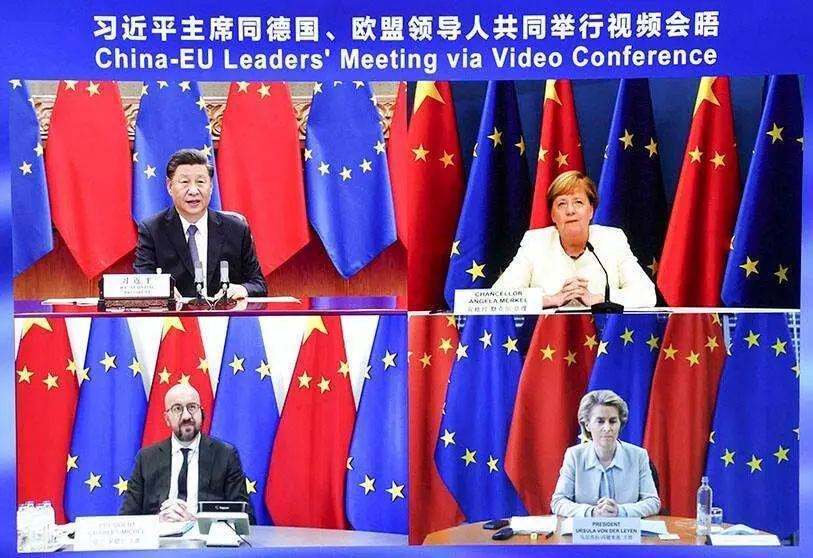The European Union's VICA relations with China

The buzzword VICA (Volatile, Uncertain, Complex and Ambiguous environment) is a perfect term to describe EU-China relations. While the Asian giant is an important trading partner, it is also a competitor, and an enemy, in many respects. China is the world's second largest economy, behind the United States, and is racing to the top spot.
China also has the world's largest online market and the world's largest middle class, with almost 500 million people eager to consume and travel, and a purchasing power already close to that of developed countries. For example, China has the largest number of tourists in the world, sending 100 million tourists abroad every year. Incidentally, only half a million of them visit Spain, so the potential is enormous.
In January this year, Ursula von der Leyen, president of the European Commission, admitted that China is a "systematic rival" in the way it views people and human rights. She added that the relationship will always be "an ambiguous one".
The European Union and China approved an investment agreement in late December 2020 after seven years of marathon negotiations, an agreement that would ensure a stable framework of conditions for trade and investment. If ratified, it could lead Beijing to relax some of its strict rules for foreign companies, such as the need to operate through joint ventures with local partners.
The pact would also offer European companies access to the Chinese market and facilitate Chinese investment in Europe. It also sets out provisions on fair competition and sustainable development.
The signed agreement is probably politically favourable for China, as the country has suffered from a certain political isolation since COVID. It is a way to gain legitimacy with one of the world's best partners, the EU. It has therefore been seen as a diplomatic victory for Chinese leader Xi Jinping.
Although the agreement aims to eliminate trade barriers, many fear that this agreement will favour Germany above all: the Chinese market is particularly important for car manufacturers and Germans have a large presence in the country. Merkel has been the most frequent European leader to visit China in the past 15 years. In fact, it was she, the German chancellor, who gave the final push to the talks.
For it to enter into force, it still needs to be ratified by EU member states and the European Parliament, where it faces massive opposition.
However, for the past few weeks, the EU-China investment agreement has been frozen. In March this year, the EU imposed sanctions on China over its treatment of the Muslim Uighur minority in the Xinjiang region. These were the first human rights sanctions against China since the 1989 Tiananmen Square massacre. In response, Beijing immediately announced sanctions against several members of the European Parliament.
Diplomatic tensions have made the terms of the agreement "unfavourable". European Commission Vice-President Valdis Dombrovskis himself has declared that efforts to get the deal approved are frozen.
"It is clear that in the current situation, with EU sanctions against China and Chinese counter-sanctions, the environment is not conducive to the ratification of the agreement," Dombrovskis said. Therefore, the ratification process is on hold.
Maybe the agreement will be good, maybe it will never be implemented, we don't know. But in any case, who would benefit from it? Not most companies and not most countries. China is a market full of obstacles and entering it has proven to be extremely tough.
China no longer wants to be the world's factory. Or rather, China does not just want to be the world's factory: it wants to be the world's bank, investing in traditionally European geographical areas such as Greece or the Balkans, it wants to be the world's leading economic and technological power, the global 5G, in other words, to impose itself at all levels.
Europe, weakened by Brexit and the management of the pandemic, must be able to create national champions, large companies that can compete with China, especially in strategic and technological sectors. The fact that the US is led by Biden sheds some light: after Trump's trade war, his successor's style will be more negotiating.
In conclusion, we can affirm that, in this VICA environment, Europe will be required to be more proactive, flexible and provide stronger leadership.
Eva Perea. Lecturer in Business and Economics at the Universitat Abat Oliba CEU/The Diplomat.
